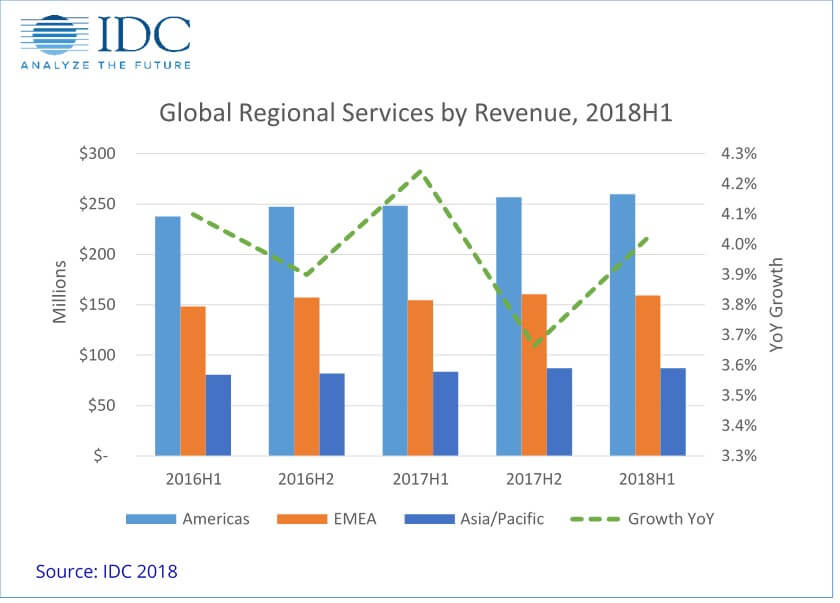Everywhere you go, from conferences to online forums to your next-door neighbor who doesn’t know what TMI is, everyone’s talking about outsourcing. But what does it really mean?
WHAT IS OUTSOURCING?
Outsourcing is the strategic utilization of external resources and workforce to complete tasks that were traditionally handled in-house by the staff of a company. In simple terms, because not all jobs can be done in-house, outsourcing makes it possible to delegate specific parts of a project or service offering to efficient service providers who are experts in that particular field.
To further break it down, outsourcing is the process by which a company seeks or requests the support of an external firm to help handle specific tasks so that they can remain focused on the core / most important aspects of their business.
Imagine you’re a software developer or a health care service provider; your core strength lies in developing awesome applications or delivering best-in-class healthcare services. But there are other important parts of your business like payroll processing, IT infrastructure, call center outsourcing, etc. To handle these in-house, you may need to employ 10-15 full-time employees, which is way out of your operating budget! So what do you do? Employ just one and make do with an inefficient support department? Or Employ the 15 you need and wait for the creditors to come knocking?
Outsourcing is the third option – the better and more practical solution. It gives you the chance to get the services you need at probably half the cost & have experts deliver better results.
How Do You Outsource?
There are 3 main types of outsourcing which are onshore, nearshore or offshore.
- Onshore refers to outsourcing done within the borders of a country
- Nearshore refers to outsourcing to a company in a neighboring country. A good example of this would be US companies having their consumer electronics made in Mexico.
- Offshore outsourcing occurs when you outsource to a country far away – usually a whole different continent because it is significantly cheaper. A perfect example would be a company based in the US outsourcing jobs nearshore to Mexico or offshore to India.
What Should Be Outsourced?
You probably don’t realize it but you already outsource some parts of your processes as a company. Let’s take your website, do you have a team of web designers, builders, and digital marketing experts in-house running it? Or is it outsourced to another firm? The same can be said for your lawyers, janitors, security staff, and even auditors.
In the manufacturing industry, it is now very common to see businesses moving from one country to another. The cereal you had this morning was made across the border, your socks were made in Turkey, your coffee, in Kenya and most of the mobile gadgets you use were made in China.
So to answer the question, anyone can outsource, even you, be it business hours support, after hours IT support, or 24/7/365 general customer service help desk.
How Does Outsourcing Work?
Outsourcing has been around for a long time, the internet has only made it so much easier to execute. Technological advancement and the easy accessibility to hardware, software, and internet connectivity have made the world one global village so outsourcing is now so much easier. People can work from just about anywhere and seamless communication can now be done across longer distances than ever before.
BPO, KPO and ITO? What Do They Mean?
These refer to three different types of outsourcing:
- Business Process Outsourcing (BPO) involves getting a third party to handle certain operational functions, e.g., customer services, payroll, accounting, inventory, etc.
- Knowledge Process Outsourcing (KPO) requires more advanced technical skills. Services that can be outsourced under this category include legal services, content writing, data research and analysis, research and development, and intellectual property.
- Information Technology Outsourcing (ITO) involves tech-based functions such as software and application development, network administration, and web development.
What Are The Benefits Of Outsourcing?
If outsourcing didn’t exist, imagine how much would it cost (both in time and money), to produce that special coffee mug of yours in-house. Throw in growing your own beans, producing your own milk and sugar, and no one would ever drink coffee again.
Outsourcing customer service saves a lot of money. Companies in the US, UK, or Europe can save up to 65% of costs just by outsourcing labor to other countries.
Other benefits include;
Increased Efficiency
Outsourcing gives you the opportunity to leverage the many years of experience and advanced business practices of the hired firm to help grow your business quickly. Their knowledge and understanding, coupled with the many years of experience they bring, ensure the job is done to a standard that can rival that of any other firm around the world. This invariably results in greater efficiency and greater productivity – and would definitely reflect in your company’s bottom line.
Focus On Core Areas
Outsourcing specific tasks to third-party professionals free up time and energy so you can channel them into building your brand, invest in research and development while ensuring that you offer your clients better value and services.
Save On Infrastructure & Technology
There would be little or no need to invest in certain infrastructure if you outsource some of your processes to a third-party company. The business partner you outsource jobs to would take responsibility for the infrastructure needed to execute it.
Access To Skilled Resources
You won’t need to employ & train staff. We all know that it can be tedious and expensive to expand your customer support. Firms like 31West will handle all your customer support needs and keep your customers coming back for more. We employ world-class business practices which we have perfected over the years, as a result of catering to different clients from all over the world.
Faster & Better Services
Offer your clients better deliverables while minimizing the time it takes to reach the marketplace. Outsourcing makes it easier to get your ideas converted into products in the shortest possible time frame.
What Is Global Outsourcing Market Size?
Worldwide Services Revenue Led by Steady Growth in the Americas During the First Half of 2018, According to IDC.

Which Business Functions Are Outsourced?
These are few of the business functions which are commonly outsourced:
- Accounting & Book-keeping
- Book-keeping
- Reconciliation
- Account Payable
- Account Receivable
- Tax Preparation
- Tax Filing
- Banking, Finance & Insurance
- Transaction Processing
- Fraud Prevention
- Due Diligence
- Loan Disbursement
- Load Recovery
- Claims Processing
- Customer Support
- Help Desk
- Customer Service
- Creative Work
- Content Writing
- Content Moderation
- Video Transcription
- Video Titling
- Animation
- Engineering
- CAD/CAM
- Geometric Modelling
- Human Resources
- Employee Life Cycle Management
- Payroll Processing
- Employee Greviance Management
- 401(k) Processing
- Information Technology (IT)
- Application Development
- Application Maintenance
- Data Center Operations
- Database Administration
- Desktop Support
- Disaster Recovery Services
- IT Security
- Network Operations
- Web Operations
- Legal Service
- Agreement drafting
- Compliances
- Research
- Logistic & Supply Chain
- Inventory Management
- Export-Import Documentation
- Manufacturing
- Design & Packaging
- Returns & Claims
- Sales & Marketing
- SEO
- SEM
- Email Campaigns
- Lead Generation
- CRM
- Security
- CCTV Monitoring
- cyber Forensic
Looking To Outsource Your Company’s Customer Support?
Over the 10 years, 31West has proven to be a reliable outsourcing IT help desk provider for different businesses spanning different industries all over the world and we’d love to work with you too!







